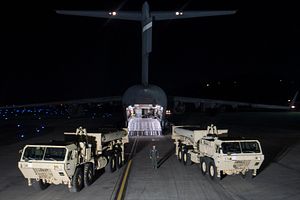As the dispute between China and South Korea over the deployment of the Terminal High Altitude Area Defense (THAAD) system continues, South Korean brands are suffering in China.
On August 29, the Financial Times (FT) reported that the South Korean multinational automotive manufacturer Hyundai Motor is having trouble in China. Its affiliate, Beijing Hyundai, ceased production at all four Chinese factories (three in Beijing and one in Cangzhou), because “a local supplier refused to provide necessary parts when it did not receive payment.” To make matters worse, Hyundai’s sales in China dropped 64.2 percent year on year in the second quarter. China is Hyundai’s largest market.
On August 30, Hyundai spokesman Sohn Yong revealed that Hyundai has resumed production in China gradually, since the local supplier started to provide parts again, and Hyundai remains “in talks with the supplier to resolve the payment issue,” according to ABC.
Hyundai is not the only South Korean brand that is struggling in China now. Lotte Group, another South Korean multinational conglomerate, is also under strain.
Since Lotte Group agreed to provide its land in South Korea to deploy the U.S. THAAD system, some Chinese nationals launched boycotts against Lotte Group, refusing to purchase in Chinese Lotte Marts anymore.
Although the Chinese central government has repeatedly denied any direct involvement in the boycotts, Lotte Mart has indeed become the target of governmental regulation. Inspectors from the Beijing Development and Reform Commission recently seized 23 pump motors and four power transformers from two Lotte Mart stores in Beijing, claiming that the equipment failed to meet the city’s power conservation standards. Under pressure, Lotte Mart has already closed 74 stores in China as of August 30.
However, it’s particularly worth noting that those most impacted by the the national-level diplomatic dispute are not the South Korean companies, but the local Chinese employees.
For example, Beijing Hyundai Motor, established in 2002, with about 10,000 employees, is actually a 50-50 joint-venture between BAIC Motor and Hyundai Motor Company. And the Hyundai-branded automobiles the joint-venture produced were mainly for the Chinese market. Currently, the plant shutdowns and dropping sales have directly led to a decrease of the front-line workers’ salary by more than 30 percent.

































